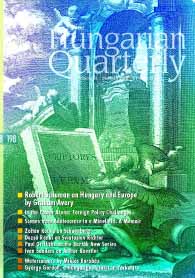In the Power Arena. US–Hungarian Relations 1942–1989
In the Power Arena. US–Hungarian Relations 1942–1989
Author(s): László BorhiSubject(s): History
Published by: Society of the Hungarian Quarterly
Summary/Abstract: American documents show that between 1941 and 1989 Hungary was at the mercy of the Great Powers and their struggle for hegemony in Europe. Hungary was far from being an independent actor on the international stage. The United States wanted European stability, and its manoeuvres in Eastern Europe sought this aim. Stability might be won by advancing the cause of national independence. Here, America might try to put an end to Soviet occupation. At other times, national sovereignty rubbed up against the need for stability, and the US accepted the status quo. Hungary had a say on minor issues of national interest, thus procuring resources abroad to sustain economic life and development, or supporting Hungarian minorities beyond its border. But national independence or sovereignty was clearly not in Hungary’s gift. So when it comes to passing judgement on Hungarian foreign policy, we must consider whether its policymakers had the ability to acquire the same freedom to manoeuvre as other powers operating in the same sphere of influence.
Journal: The Hungarian Quarterly
- Issue Year: 2010
- Issue No: 198
- Page Range: 67-81
- Page Count: 15
- Language: English

